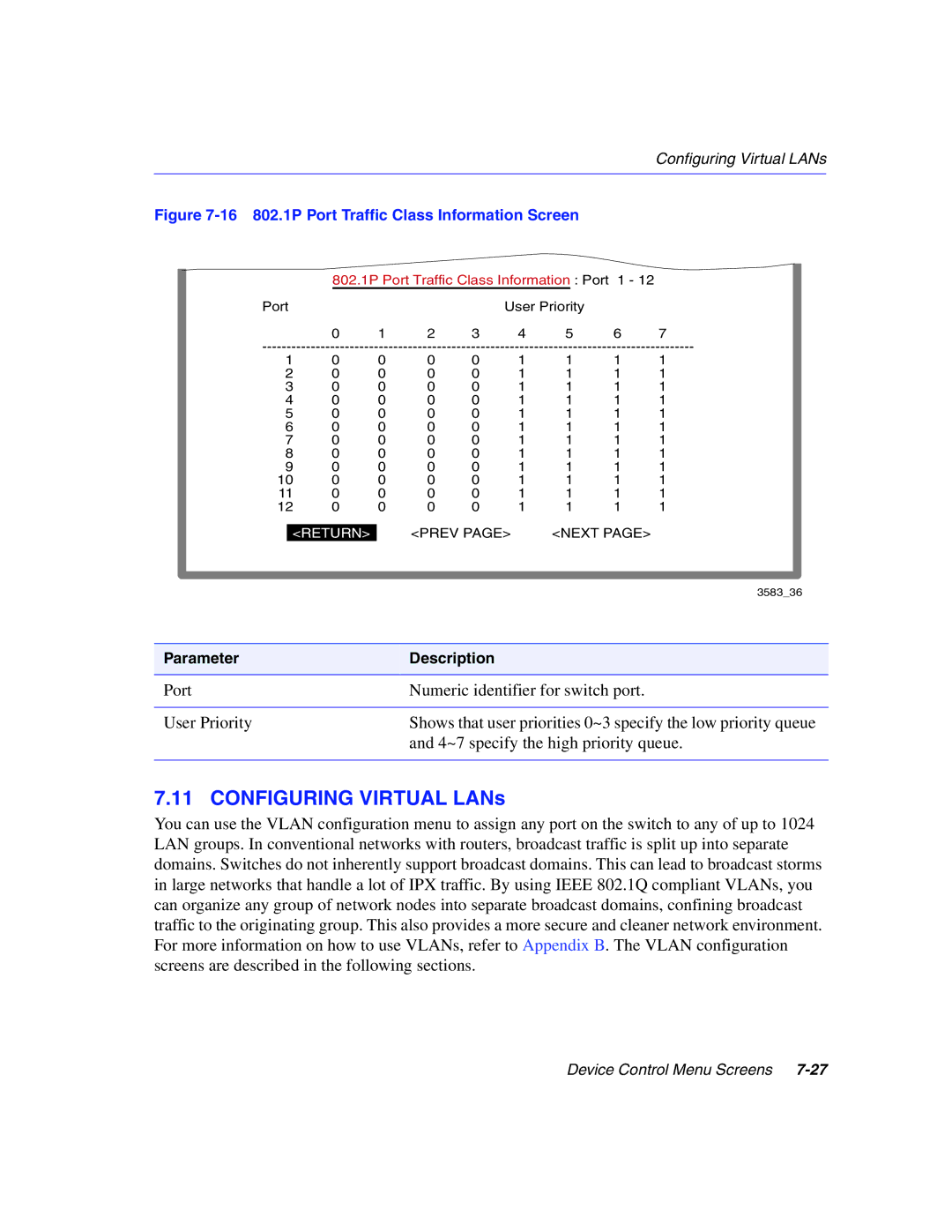
Configuring Virtual LANs
Figure 7-16 802.1P Port Traffic Class Information Screen
802.1P Port Traffic Class Information : Port | 1 - 12 |
| |||||||
|
|
|
|
|
|
|
|
| |
Port |
|
|
|
| User Priority |
|
| ||
0 | 1 | 2 | 3 | 4 | 5 | 6 | 7 | ||
1 | 0 | 0 | 0 | 0 | 1 | 1 | 1 | 1 |
2 | 0 | 0 | 0 | 0 | 1 | 1 | 1 | 1 |
3 | 0 | 0 | 0 | 0 | 1 | 1 | 1 | 1 |
4 | 0 | 0 | 0 | 0 | 1 | 1 | 1 | 1 |
5 | 0 | 0 | 0 | 0 | 1 | 1 | 1 | 1 |
6 | 0 | 0 | 0 | 0 | 1 | 1 | 1 | 1 |
7 | 0 | 0 | 0 | 0 | 1 | 1 | 1 | 1 |
8 | 0 | 0 | 0 | 0 | 1 | 1 | 1 | 1 |
9 | 0 | 0 | 0 | 0 | 1 | 1 | 1 | 1 |
10 | 0 | 0 | 0 | 0 | 1 | 1 | 1 | 1 |
11 | 0 | 0 | 0 | 0 | 1 | 1 | 1 | 1 |
12 | 0 | 0 | 0 | 0 | 1 | 1 | 1 | 1 |
<RETURN>
<PREV PAGE> | <NEXT PAGE> |
| 3583_36 |
|
|
Parameter | Description |
|
|
Port | Numeric identifier for switch port. |
|
|
User Priority | Shows that user priorities 0~3 specify the low priority queue |
| and 4~7 specify the high priority queue. |
|
|
7.11 CONFIGURING VIRTUAL LANs
You can use the VLAN configuration menu to assign any port on the switch to any of up to 1024 LAN groups. In conventional networks with routers, broadcast traffic is split up into separate domains. Switches do not inherently support broadcast domains. This can lead to broadcast storms in large networks that handle a lot of IPX traffic. By using IEEE 802.1Q compliant VLANs, you can organize any group of network nodes into separate broadcast domains, confining broadcast traffic to the originating group. This also provides a more secure and cleaner network environment. For more information on how to use VLANs, refer to Appendix B. The VLAN configuration screens are described in the following sections.
Device Control Menu Screens
